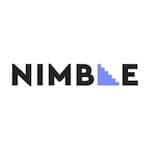In the ever-evolving digital landscape, privacy and security online have become paramount concerns for individuals and businesses alike. With hackers on the prowl and data breaches becoming all too common, safeguarding your internet connection is no longer optional. Enter Virtual Private Networks, or VPNs – the champions of internet privacy. These powerful tools encrypt your online activity and obscure your IP address, making it nearly impossible for anyone to track your movements across the web. Yet, with a plethora of VPN services flooding the market, choosing the right one can feel like navigating a minefield. Fret not, as we delve into the world of best VPN software, showcasing the top contenders that promise to fortify your digital life, keeping your data safe and your online activities private, no matter where you navigate in the vast cyberspace.
What is VPN Software?


VyprVPN


NordVPN


PrivateProxy


Oxylabs


Hide.me VPN


Proxy-Seller


Smartproxy


Nimble

Top Features
Pros
Cons

Top Features
Pros
- Strong user privacy
- Option to connect multiple devices
- Strong security features
- Excellent speed with NordVPN connection
- 5579 servers in 62 countries covered
Cons
- Some users complain about the support

Top Features
Pros
- Permits 10 IP addresses
- Instant activation
- Dual authentication method
- One free swap a month
- Good connections
- 24/7 Live support
Cons
- A trial subscription requires billing information
- Limited payment options

Top Features
Pros
- Good overall performance
- Reliable and stable proxies
- Supports SOCKS5, HTTP and HTTPS
- Flexible proxy controls
- 102M+ IPs worldwide
- Country and ASN filtering
- 24/7 live support
Cons
- High entry threshold
- Expensive

Top Features
Pros
- Offers free plan
- Free proxy browser
- Ten simultaneous connections
- Works with most streaming services
- Good speed test score
- Reliable security features
- High configuration
Cons
- Lacks specialized servers
- Minor kill switch issues
- IP leak issues

Top Features
Pros
- Simple to use
- Supports HTTPS and SOCKS5
- Flexible payment option
- Reasonable speed connection
- Supports mobile proxy
- Large IP and location coverage
Cons
- Poor compatibility
- No free trial

Top Features
Pros
- Easy setup
- Over 40M Reliable proxies
- Over 195 locations
- Proxy rotation & IP replacement
- 3-day refund
- 24/7 Dedicated support
Cons
- Limited city-level targeting
- Usage restrictions

Top Features
Pros
- Nimble can gather data from any website
- Strong and large infrastructure
- Completely secured platform
- Stable API to gather data
- A modern proxy solution
Cons
- New in the market
Full guide to VPN Software
What Is VPN Software?
Virtual Private Network, or VPN, software is a technology that lets you use a private and secure network connection to access the public internet. It functions by rerouting your internet traffic to a server located in a distant place over an encrypted tunnel.
Your IP address is hidden, your personal information is safeguarded, and your digital data is encrypted during this procedure.
VPNs are frequently used to avoid geographical restrictions on websites or streaming services, preserve privacy when utilizing public WiFi, and guard against possible data interception.
They are regarded as necessary security tools when working remotely or utilizing a public internet connection. Even if a VPN might offer some privacy, it cannot entirely hide your identity online.
How Does VPN Software Support Business Operations?
VPN software supports business operations by providing secure, remote access to company resources, protecting sensitive data, and enabling international collaborations.
Here’s how VPN software supports business operations:
- Safe Remote Access: Virtual private networks, or VPNs, let distant workers log in to the company’s internal network safely. This is especially helpful when workers are on the go or work from home.
- Data Security: VPNs encrypt data as it is transferred over the internet by creating a safe tunnel for online browsing. This keeps confidential information off the public internet.
- Creation of Shared Networks: Organizations can establish a shared network amongst several office locations by using VPNs.
- Fostering corporate Growth: Virtual private networks (VPNs) offer a reliable, dependable, and effective means of fostering corporate growth while preserving efficiency.
What Are the Core Functions of VPNs?
The core functions of VPN software are to provide secure remote access, ensure data security through encryption, create shared networks for multiple office locations, and support business growth by maintaining productivity regardless of physical location.
Here are some of the core functions of VPN software:
- Secure Remote Access: It enables everyone to safely access a distant network, like a company’s internal network.
- Data Security: It creates a secure tunnel for online activity by encrypting data transferred over the internet.
- Shared Network Creation: It makes it possible to set up a shared network among several places, which makes data sharing and cooperation easier.
- Supporting Business Growth: It facilitates the expansion of businesses by guaranteeing dependable access to the information and resources required, allowing for efficient operations regardless of physical location.
Why Should Businesses Use a VPN Software?
Businesses should use VPN software to ensure secure remote access, protect data through encryption, facilitate collaboration via shared networks across multiple locations, and support growth by maintaining productivity irrespective of employees’ physical locations.
Here’s why businesses should use VPN software:
- Secure remote access
- Data protection
- Inter-office connectivity
- Business scalability
- Anonymity
- Cost-effective
- Regulatory compliance
What Are the Key Benefits of Using VPN Software?
The key benefits of using VPN software are secure remote access, data protection, inter-office connectivity, business scalability, anonymity, cost-effectiveness, and regulatory compliance.
Here are the key benefits of using VPN software:
- Secure Remote Access: It provides secure access to the company’s network from remote locations.
- Data Protection: It encrypts data to protect sensitive information during transmission.
- Inter-Office Connectivity: It can connect multiple office locations on a single network for easy collaboration.
- Business Scalability: It supports business growth by allowing easy addition of new users to the network.
- Anonymity: It can mask the IP address, providing anonymity and protecting the business from potential cyber threats.
What Are the Potential Drawbacks or Limitations of VPN Software?
The potential drawbacks or limitations of VPN software include slower internet speed, increased latency, additional inconveniences, potential risks due to incorrect implementation, scalability issues, limited protection against advanced cyberattacks, and legal and privacy concerns.
Here are some of the potential drawbacks or limitations of VPN software:
- Slower Speed: Depending on server capacity, encryption, and routing, a VPN may occasionally result in a slower internet speed.
- Increased Latency: Using a VPN may increase the time it takes for data to move from your device to a server, often known as a “ping.”
- Additional Inconveniences: Using a VPN may make it necessary to frequently input your username and password, prevent you from accessing your online bank account, or increase the number of CAPTCHAs you must solve to access certain websites.
- Potential Risks: Poor practices and improper implementation can result in potential risks.
- Scalability Issues: VPN scalability can be problematic, particularly for enterprises.
- Limited Defense Against Advanced Cyberattacks: VPNs might not offer enough defense against sophisticated cyberattacks.
How Can VPN Software Help Businesses Gain a Competitive Edge?
VPN software can help businesses gain a competitive edge by enhancing security, supporting remote access, maintaining data privacy, saving costs, scaling with business growth, and adapting to evolving workplace needs.
Here’s how VPN tools can help businesses:
- Enhanced security
- Remote access
- Data privacy
- Cost savings
- Scalability
- Adaptability
What Are the Different Types of VPN Software?
The different types of VPN software include personal or consumer VPNs, remote access VPNs, site-to-site VPNs, and cloud VPNs.
Here’s a comparison table showing different types of VPNs:
| Type | Definition | Best for |
|---|---|---|
| Personal/Consumer VPNs | Software designed to protect an individual’s internet connection by encrypting data and hiding the IP address. | Individuals concerned about privacy and security online, accessing geo-restricted content, or using public Wi-Fi. |
| Remote Access VPNs | VPNs allow a user to securely connect to a private network from a remote location. | Employees and organizations needing secure access to internal networks and resources from different locations. |
| Site-to-Site VPNs | Connects entire networks so that resources can be shared securely from one location to another. | Multiple office locations of a business needing to share resources securely as if within the same local network. |
| Cloud VPNs | A VPN model hosted in a cloud environment provides secure access to cloud services and resources. | Businesses increasingly utilizing cloud resources and requiring secure, scalable access to cloud environments. |
How Do These Types of VPN Software Cater to Various Business Needs?
Various VPN software types offer customized security and connectivity solutions for individual users, distant workers, inter-office communications, and cloud-based resource access, meeting various business demands.
Every kind of VPN is made to handle particular situations and difficulties, guaranteeing safe and effective operations for companies of various kinds and industries.
Which Type of VPN Software Is Most Suitable for Your Business?
The kind of VPN software that is best for your company will rely on its unique requirements, including its size, workforce composition, and cloud service usage. Identifying your business’s specifics and security needs can help you choose the best VPN service.
What Are the Pros and Cons of Each Type of VPN Software?
The pros and cons of each type of VPN software vary, but they offer benefits like enhanced security, online privacy, bypassing geo-blocks, and data protection, while the cons can include slower internet speed, increased latency, and potential risks due to incorrect implementation.
Here are the pros and cons of each type of VPN software:
Personal/Consumer VPNs
Pros:
- Encrypts your internet connection to secure your online activities and data from eavesdroppers.
- Allows users to bypass geographical restrictions and access content from anywhere globally.
Cons:
- Users cannot change network configurations, which might be necessary for certain business applications.
- The encryption process and server distance can sometimes reduce internet connection speed.
Remote Access VPNs
Pros:
- Provides employees secure access to internal company resources from any location, enhancing flexibility and productivity.
- It can be easily scaled to accommodate increasing remote users as the business grows.
Cons:
- Requires careful setup and management, particularly for larger organizations with many users.
- If not properly secured, it can be a vulnerable entry point into the internal network.
Site-to-Site VPNs
Pros:
- Allows different branches or offices to share resources securely as if they were on the same local network.
- Reduces the need for expensive leased lines to connect different sites, saving on operational costs.
Cons:
- Requires more complex setup and maintenance, especially when connecting multiple sites.
- Changes in the network or adding new sites can require significant reconfiguration.
Cloud VPNs
Pros:
- Easily scales with your business needs, accommodating fluctuating traffic without needing physical hardware adjustments.
- Provides secure access to cloud resources from anywhere, making it ideal for businesses with a global workforce or client base.
Cons:
- Performance is highly dependent on internet connection quality and speed, which can be inconsistent.
- Ensuring security in a cloud environment can be complex and requires continuous monitoring and management.
What Are the Free and Open Source Alternatives to Commercial VPN Software?
The free and open-source alternatives to commercial VPN software include WireGuard, SoftEther VPN, ZeroTier, Shadowsocks, and Tailscale.
Here are some of the free and open-source alternatives:
- WireGuard
- SoftEther VPN
- ZeroTier
- Shadowsocks
- Tailscale
- Openswan
- Tcpcrypt
What Are the Best Free VPN Solutions?
The top best free VPN solutions are WireGuard, SoftEther VPN, ZeroTier, and Shadowsocks. The best free VPN solutions offer a range of features tailored to different user needs, from enhanced privacy to secure network connections.
Here is a comparison table showing the best VPN solutions:
| Software Name | Key Features | Best for |
|---|---|---|
| WireGuard | Lightweight, fast, and has modern cryptographic algorithms | Users looking for a fast, modern, and secure VPN protocol for personal use and small to medium-sized businesses. |
| SoftEther VPN | Supports multiple VPN protocols, and cross-platform | Businesses and individuals needing a versatile, multi-protocol VPN solution for complex network environments. |
| ZeroTier | Creates virtual Ethernet networks, and is easy to set up and use | Users needing to connect devices across different networks seamlessly, like creating a virtual office LAN over the internet. |
| Shadowsocks | Designed for bypassing internet censorship, and proxy-based | Individuals in regions with heavy internet censorship looking to access restricted content securely and efficiently. |
| Tailscale | Built on WireGuard protocol, and zero-config, mesh network | Businesses and individuals looking for an easy-to-use, secure mesh network for connecting various devices. |
What Are the Top Open Source VPN Options?
The top open-source VPN options include OpenVPN, Libreswan VPN, SoftEther VPN, Openswan VPN, and Freelan VPN.
Here are some of the top open-source VPN options:
- OpenVPN
- Libreswan VPN
- SoftEther VPN
- Openswan VPN
- Freelan VPN
How Do Free and Open Source VPN Solutions Compare to Paid Solutions?
Free and open source VPN solutions, while offering transparency and flexibility, may have limitations on data usage, server locations, and speed, and potential risks due to incorrect implementation, whereas paid solutions typically offer better performance, enhanced security features, customer support, and a wider range of server options.
Who Can Benefit from the Best VPN Software?
Remote workers, businesses, individuals concerned about privacy, digital nomads, gamers, and travelers can benefit from VPN software because it provides secure and private internet access.
Here are some of the individuals that can benefit from VPN software:
- Remote workers
- Businesses
- Individuals concerned about privacy
- Digital nomads
- Gamers
- Travelers
Which Industries or Sectors Benefit the Most from VPNs?
The industries or sectors that benefit the most from VPN software include healthcare, legal, banking, technology, and education.
Here are some of the industries that benefit the most from VPN software:
- IT and Cybersecurity
- Banking and Finance
- Healthcare
- Education
- Legal Services
- Government
- Telecommunications
- Retail and E-commerce
- Remote Work and Freelancing
How Can Businesses of Different Sizes Benefit from VPNs?
VPN software can offer a range of benefits tailored to the needs of businesses of different sizes, enhancing their security, privacy, and operational efficiency.
Here’s how businesses of different sizes can benefit from VPN software:
| Business Size | Key Benefits |
|---|---|
| Small Businesses | – Secure sensitive data with limited IT resources – Enable safe remote work for a small team – Affordable way to enhance online privacy and security |
| Medium Businesses | – Scalable security solutions for growing teams – Secure inter-office connectivity for multiple locations – Enhanced data protection for increased volume of sensitive information |
| Large Enterprises | – Robust and comprehensive security for global operations – High scalability to accommodate a large number of users – Advanced features for complex network architectures and regulatory compliance |
Are There Any Businesses That Might Not Benefit from Using the Best VPNs?
While most businesses can benefit from using VPN software, businesses heavily reliant on cloud-based applications, small businesses with no remote workers, businesses in regions where VPN use is restricted or banned.
Businesses with very limited internet bandwidth, and businesses that do not handle sensitive data might not find it as beneficial due to factors such as cloud complexities, scalability issues, and the nature of their work.
What Departments or Teams Within a Company Can Benefit from Best VPN Service Providers?
Departments or teams within a company that can benefit from VPN software include IT, sales, marketing, human resources, finance, and any team with remote workers or those handling sensitive data.
Here are some of the departments that can benefit from VPN software:
- IT Department
- Sales Department
- Marketing Department
- Human Resources Department
- Finance Department
- Operations Department
- Customer Service Department
What Are the Pricing Models for Virtual Private Network Software?
The pricing models of VPN software include subscription, per-user pricing, freemium, lifetime license, tiered pricing, and pay-as-you-go. The pricing models for VPN software vary to accommodate the diverse needs and scales of users, from individuals to large enterprises.
Here are some common pricing models:
- Subscription-Based: Customers pay a set monthly or yearly amount to access the VPN service; plans typically range from basic to premium, with the latter providing better performance or more features.
- Per-User Pricing: Based on the number of users or devices using the VPN service, this pricing type is especially popular in business VPN solutions.
- Freemium: Provides a free version of the VPN program with the option to upgrade to a premium version with unlimited data, faster speeds, and more features.
- Lifetime License: Users can access the VPN software indefinitely at a one-time cost. Smaller VPN companies usually employ this less popular technique.
- Tiered Pricing: Provides many price tiers according to the characteristics or degree of service. More server locations, increased bandwidth limitations, and enhanced security features are examples of higher tiers.
- Pay-As-You-Go: Consumers are charged under this arrangement according to their actual use of the VPN service, including the volume of data they send. Although it’s less often, certain cloud VPN services for corporations offer it.
What Are the Potential Hidden Costs or Fees Associated with VPN Software?
The potential hidden costs or fees associated with VPN software include security risks, lack of certain features, advertising, and more anonymous payment methods such as cryptocurrencies.
Furthermore, even if some VPNs are less expensive than others, they might compensate for these differences in other ways. After the initial period has passed, it’s crucial to consider the renewal pricing.
Finally, although free VPNs may sound alluring, there may be unstated expenses associated with them and possible threats to your privacy and online safety.
How Do the Pricing Models of Different VPN Software Providers Compare?
The pricing models of different VPN software providers are compared based on features such as the number of servers and locations, privacy and security measures, performance, and additional services like multi-hop connections and access to the Tor network.
Here is a table comparing different VPN software:
| Provider | Pricing Model | Starting Price |
|---|---|---|
| ProtonVPN | Freemium & Subscription-Based | $4.99/month |
| NordVPN | Subscription-Based | $3.49/month |
| Surfshark VPN | Subscription-Based | $2.49/month |
| ExpressVPN | Subscription-Based | $8.32/month |
| CyberGhost VPN | Subscription-Based | $2.11/month |
| PureVPN | Subscription-Based | $2.11/month |
How Are Leading Companies Leveraging the Best VPN Service Software?
Leading companies are leveraging VPN software to enhance network security and enable global team members to collaborate effectively, regardless of their physical location or internet service provider.
A virtual private network, or VPN, creates a protected, encrypted connection over the internet between a device and a network. This keeps sensitive data safe from interception by unauthorized parties.
In addition, they offer fast internet, which makes it possible to play games, stream videos, download and upload files, and do much more. Furthermore, VPNs include capabilities like double VPN for additional protection and enable access to content that is blocked in some regions.
What Are Some Real-World Examples of Successful VPN Software Implementation?
Some real-world examples of successful VPN software implementation include Softech, which used OpenVPN Access Server to secure employees’ connection to remote databases, and Omnisend, which secured remote employees’ access to sensitive internal databases as the company expanded globally.
Here are some real-world examples of successful VPN software:
- Softech: It is a digital company offering services, software, and systems to help businesses monitor their surroundings. Without reducing bandwidth or performance, they employed OpenVPN Access Server to secure workers’ connections to remote databases.
- Omnisend: An automated email and SMS marketing tool for e-commerce. As it grew internationally, the business realized it needed to protect remote workers’ access to confidential corporate databases.
What Are the Typical ROI Metrics for Companies that Use a VPN Software?
The typical ROI metrics for companies using VPN software include Customer Acquisition Cost (CAC), Churn Rate, Average Revenue per User (ARPU), Customer Lifetime Value (CLTV), Number of Active Users, Server Uptime, and Average Connection Speed.
In addition to these metrics, companies consider reduced data breaches, money savings from enhanced security, and increased productivity from remote and global team members. These factors contribute to the overall return on investment for VPN software.
What Are the Top VPN Software Solutions in 2024?
The top VPN software solutions in 2024 include ProtonVPN, NordVPN, Surfshark VPN, ExpressVPN and CyberGhost VPN.
| Software | User Rating | Pros | Cons |
|---|---|---|---|
| ProtonVPN | 4.5/5 | Strong focus on security and privacy, free version available | Fewer servers compared to competitors, speeds can vary |
| NordVPN | 4.4/5 | Large server network, advanced security features | On the pricier side, occasional slow server connections |
| Surfshark VPN | 4.6/5 | Unlimited simultaneous connections, competitive pricing | Younger company, less track record, some inconsistent speeds |
| ExpressVPN | 4.5/5 | High-speed servers, excellent privacy and security features | Premium pricing and limited advanced configuration options |
| CyberGhost VPN | 4.3/5 | User-friendly interface, a wide range of servers | Mixed reviews on customer service, occasional connectivity issues |
How Do Users Review These Top VPN Server Solutions?
Users rate these top VPN solutions based on factors such as security, privacy, speed, VPN server locations, ease of use, customer service, and price. There is a large variation in customer ratings among VPN companies because these characteristics might differ greatly.
It’s crucial to remember that unique user experiences may also affect these rankings. As a result, it’s wise to consult various sources and reviews while assessing VPN options.
What Are the Strengths and Weaknesses of the Most Popular VPN Applications?
The strengths of the most popular VPN apps typically include enhanced privacy and security, access to geo-blocked content, protection against cyber threats, and improved online experience.
On the other hand, the weaknesses can include slower web speed, potential security issues with cheap or free VPNs, incompatibility with certain devices, and the fact that VPNs are banned in certain countries.
Here are some of the strengths and weaknesses of the best VPNs:
ProtonVPN
Pros:
- Proton VPN is known for its strong commitment to privacy, strict no-logs policy, and secure encryption methods. It is one of the fastest VPN providers in the market.
- It offers a reliable free version that provides users with basic VPN services without a time limit.
Cons:
- The free version has limited servers, which can lead to overcrowding and slower speeds.
- Some users report variability in connection speeds, particularly on distant servers.
NordVPN
Pros:
- NordVPN boasts a vast network of servers worldwide, enhancing speed and server options for users.
- Offers features like Double VPN and Onion over VPN for extra security layers.
Cons:
- While offering extensive features, NordVPN is considered one of the pricier options on the market.
- Some users experience slow connections on certain servers, although this is not a universal issue.
Surfshark VPN
Pros:
- Surfshark allows unlimited devices to connect simultaneously, which is a standout feature.
- It offers a strong set of features at a competitive price, making it a great value option.
Cons:
- While generally fast, some users report inconsistency in speeds across different servers.
- Being newer to the market, it has a shorter track record, which may concern some users looking for established reliability.
ExpressVPN
Pros:
- Known for its high-speed connections and reliability across its server network.
- Offers apps for various devices and operating systems, including smart TVs and game consoles.
Cons:
- The service is on the higher end of the pricing spectrum, especially for month-to-month plans.
- Allows fewer simultaneous connections compared to some competitors.
CyberGhost VPN
Pros:
- CyberGhost is known for its easy-to-navigate interface, making it a good choice for VPN newcomers.
- Offers a wide range of servers across different countries, enhancing global access and reliability.
Cons:
- Some users report mixed experiences with customer support responsiveness and helpfulness.
- Occasional reports of connectivity issues, including dropped connections and trouble connecting to selected servers.
How Is VPN Software Evolving with Current Tech Trends?
VPN software is evolving in response to current technology trends, adapting to new security, speed, and functionality demands.
Here are some key ways in which VPN technology is keeping pace with these trends:
- Integration with IoT Devices
- Improved Encryption Standards
- Cloud Integration
- AI and Machine Learning
- Multi-Factor Authentication (MFA)
- Zero Trust Security Models
What Future Developments Are Anticipated in the VPN Software Industry?
Future developments anticipated in the VPN software industry include AI integration, quantum-safe VPNs, decentralized VPNs, multi-cloud VPNs, and edge-computing VPNs.
Here are some of the future developments in the VPN software industry:
- AI Integration: Functions powered by AI have the potential to transform the market completely. Algorithms based on machine learning optimize routing, lower latency, and allocate resources dynamically.
- Quantum-Safe VPNs: Data security is not jeopardized even when quantum computers can crack current cryptographic techniques. Even in the event of a quantum attack, quantum-safe VPNs stay protected.
- Decentralized VPNs: These VPNs function via dispersed network nodes, frequently used in blockchain technology. They lower the possibility of a single point of failure and offer better security.
- Multi-cloud VPNs: As more work is being done remotely and involves extensive cloud migrations, multi-cloud VPNs provide a range of cloud-native protocols, which adds flexibility and adaptability to the technology.
- VPNs for Edge Computing: Edge computing processes data from sensors, IoT devices, and mobile devices closer to the source.
How Will Emerging Technologies Impact VPN Software?
Emerging technologies are set to significantly impact VPN software, enhancing its capabilities, performance, and security features.
Here’s how some of these technologies might influence VPN software:
- Machine learning (ML) and Artificial Intelligence (AI): AI and ML may maximize VPN performance by anticipating and reducing network congestion, choosing the quickest servers intelligently, and boosting security by immediately identifying and addressing anomalies.
- Internet of Things (IoT): VPNs must provide secure connections to various devices as Internet of Things (IoT) devices proliferate. This is necessary to guarantee that data transferred between IoT devices and networks is encrypted and safe from ever-increasing vulnerabilities.
- Blockchain Technology: Decentralized VPN services (dVPNs), which eliminate central points of failure and control, could be made possible by blockchain technology. This could lead to a more transparent and secure framework.
- Quantum Computing: VPNs face a difficulty and an opportunity from the emergence of quantum computing since it may make conventional encryption techniques vulnerable. To assure security well into the future, VPNs will need to implement quantum-resistant encryption algorithms.
- 5G Networks: VPNs must adjust to faster speeds and reduced latency when 5G is deployed to maintain secure connections without sacrificing performance, particularly for mobile devices and newly popular apps like augmented reality (AR) and virtual reality (VR).
- Edge Computing: VPNs must maintain secure connections between increasingly dispersed networks and devices as computing becomes closer to the edge. This could result in more localized VPN solutions with lower latency.
What Are the Potential Disruptors in the VPN Software Market?
The potential disruptors in the VPN software market include the growth of Platforms as a Service (PaaS), the increasing use of AI and machine learning, the rise of quantum computing, the trend towards decentralization, and the shift towards multi-cloud and edge computing VPNs.
Here are some potential disruptors in the VPN software market:
- Decentralized VPNs (dVPNs): By distributing network services among multiple nodes using blockchain technology, dVPNs improve security and may provide stronger privacy protections than conventional centralized VPNs.
- Quantum Computing: Current VPN encryption protocols are seriously threatened by the emergence of quantum computing. Quantum computers may break current cryptography techniques, so creating quantum-resistant encryption systems is required.
- Zero Trust Network Access (ZTNA): Traditional VPNs may be disrupted by this security paradigm, which assumes no trust for any entity within or outside the network by default. In some business settings, ZTNA may be viewed as a more secure option for VPNs because it provides more precise access controls.
- The Emergence of New Protocols: Unlike traditional VPN protocols, new networking protocols such as WireGuard offer considerable speed and security advantages. If these protocols become widely used, it may cause problems for providers who are less quick to adopt these innovations.
- Artificial Intelligence (AI) and Machine Learning (ML): By improving rival VPN products with more intelligent security features, automatic server selection for maximum speed, and predictive analytics to avoid congestion or outages, ML and AI have the potential to upend the market.
- Increased Regulatory Scrutiny: VPN providers may be subject to changes in data protection legislation and international regulations, particularly if they operate in countries with strict data retention rules or are involved in intelligence-sharing agreements.















